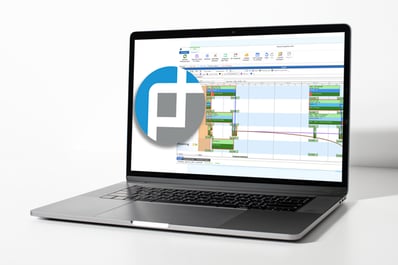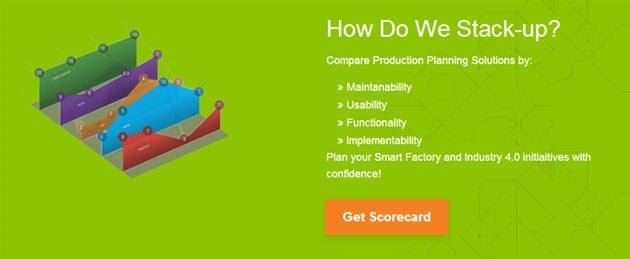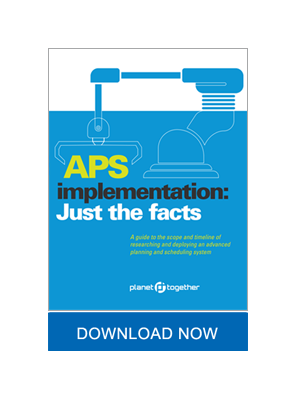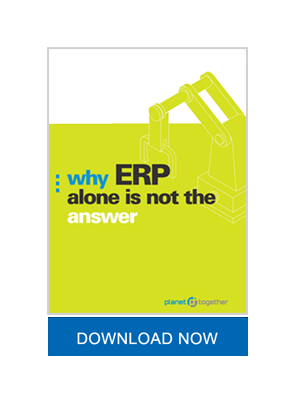Next-Generation Industrial Control Systems
From streamlining production processes to optimizing supply chain management, every aspect of the manufacturing lifecycle contributes to overall success. At the heart of this efficiency lies production planning—a complex task that requires meticulous coordination and synchronization of resources, schedules, and demand.
In recent years, the advent of next-generation industrial control systems has revolutionized the way production planning is approached. With the integration of advanced technologies and software solutions, production planners now have unprecedented tools at their disposal to streamline operations, enhance decision-making, and drive productivity.
One such integration that has gained significant traction in the manufacturing landscape is the combination of PlanetTogether, a leading production planning and scheduling software, with various Enterprise Resource Planning (ERP), Supply Chain Management (SCM), and Manufacturing Execution Systems (MES) such as SAP, Oracle, Microsoft, Kinaxis, and Aveva.
In this blog, we'll look into the intricacies of next-generation industrial control systems, explore the benefits of integrating PlanetTogether with these key software solutions, and discuss how production planners can leverage these integrations to optimize production planning processes.

Evolution of Industrial Control Systems
Before looking into the integration of PlanetTogether with ERP, SCM, and MES systems, let's take a moment to understand the evolution of industrial control systems.
Traditional manufacturing environments often relied on manual processes and disjointed systems to manage production planning. Spreadsheets, whiteboards, and standalone software applications were commonly used, leading to inefficiencies, errors, and delays.
However, as technology advanced, so did industrial control systems. Integrated solutions began to emerge, offering a unified platform for managing various aspects of manufacturing operations. These systems provided real-time visibility, enhanced collaboration, and improved decision support, laying the foundation for more agile and responsive production planning processes.

The Power of Integration: PlanetTogether and ERP/SCM/MES Systems
At the forefront of this evolution is the integration between PlanetTogether and leading ERP, SCM, and MES systems. By seamlessly connecting these platforms, manufacturers can unlock a myriad of benefits that empower production planners to optimize their operations like never before.
Real-Time Data Synchronization
One of the key advantages of integrating PlanetTogether with ERP, SCM, and MES systems is the ability to achieve real-time data synchronization. Production planners can access up-to-date information on inventory levels, demand forecasts, production schedules, and resource availability, ensuring that planning decisions are based on accurate and current data.
Enhanced Visibility and Transparency
With integrated systems, visibility and transparency across the entire manufacturing ecosystem are significantly improved. Production planners gain insights into the entire supply chain—from raw material procurement to finished goods delivery. This enhanced visibility allows for better demand forecasting, inventory management, and resource allocation, ultimately leading to more informed planning decisions.
Streamlined Processes and Automation
Automation is a cornerstone of next-generation industrial control systems. By integrating PlanetTogether with ERP, SCM, and MES systems, manufacturers can automate repetitive tasks, such as data entry, scheduling, and order processing. This streamlines processes, reduces manual errors, and frees up valuable time for production planners to focus on strategic initiatives.
Optimized Production Scheduling
Production scheduling is a complex puzzle with numerous variables to consider—resource constraints, lead times, production capacities, and more. Integrated systems leverage advanced algorithms and optimization techniques to generate optimal production schedules that minimize idle time, reduce changeover costs, and maximize throughput. This ensures that production plans are not only feasible but also cost-effective and efficient.
Seamless Communication and Collaboration
Effective communication and collaboration are essential for successful production planning. Integrated systems facilitate seamless communication between various departments, suppliers, and partners involved in the manufacturing process. Whether it's sharing production schedules, updating inventory levels, or resolving scheduling conflicts, collaboration tools within integrated platforms enable stakeholders to work together towards common goals.

Best Practices for Successful Integration
While the benefits of integrating PlanetTogether with ERP, SCM, and MES systems are undeniable, successful implementation requires careful planning and execution. Here are some best practices to consider:
Define Clear Objectives: Clearly define your objectives and expectations for the integration project. Whether it's improving production efficiency, reducing lead times, or enhancing supply chain visibility, having a clear vision will guide the implementation process.
Engage Stakeholders: Involve key stakeholders from various departments—production, supply chain, IT, etc.—early in the integration process. Their insights and feedback are invaluable for ensuring that the integrated solution meets the needs of the entire organization.
Ensure Data Integrity: Data integrity is paramount for successful integration. Establish data governance policies, standardize data formats, and implement robust data validation mechanisms to ensure the accuracy and reliability of synchronized data.
Provide Training and Support: Proper training and support are essential for driving user adoption and maximizing the benefits of the integrated solution. Offer comprehensive training programs and ongoing support to ensure that production planners and other users are proficient in using the integrated system.
Continuously Monitor and Improve: Integration is an ongoing process, not a one-time event. Continuously monitor key performance indicators (KPIs), gather feedback from users, and identify areas for improvement. Regularly review and optimize the integrated solution to adapt to evolving business needs and technological advancements.
Next-generation industrial control systems have ushered in a new era of production planning, characterized by efficiency, agility, and optimization. By integrating PlanetTogether with ERP, SCM, and MES systems, manufacturers can harness the power of advanced technologies to streamline operations, enhance decision-making, and drive productivity.
Whether it's achieving real-time data synchronization, optimizing production scheduling, or fostering seamless communication and collaboration, the benefits of integration are vast and transformative. By following best practices and leveraging real-world case studies, production planners can unlock the full potential of integrated solutions to stay ahead in today's competitive manufacturing landscape.
In this dynamic and rapidly evolving industry, embracing next-generation industrial control systems is not just a choice—it's a necessity for success. Are you ready to take your manufacturing operations to the next level? Contact us today to learn more about how PlanetTogether can help you achieve your goals and drive success in your industry.
Topics: Industrial Manufacturing, PlanetTogether Software, Real-Time Data Synchronization, Integrating PlanetTogether, Optimized Production Scheduling, Seamless Communication and Collaboration, Enhanced Visibility and Transparency, Streamlined Processes and Automation



















LEAVE A COMMENT